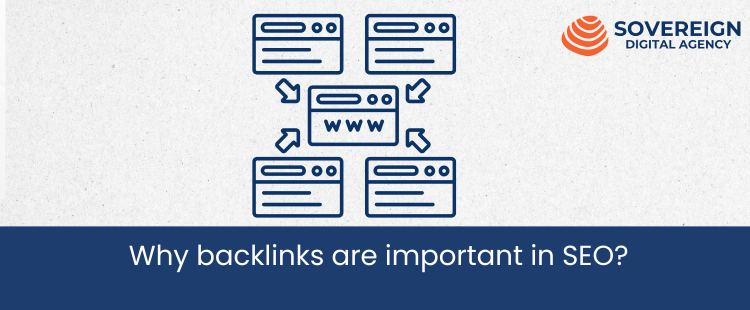The Digital Agency That Delivers Beyond Expectations
Brands & Startups Who Trust Us


























Welcome to Sovereign Digital Agency
Top-Rated Digital Marketing Firm in India
Sovereign Digital Agency is a young firm and is capable of handling all your digital marketing needs. Our team of experts will assist you in designing and executing all your campaigns with ease. We’re a group of passionate people and determined creative and problem solvers who want to make a difference. Our focus is on providing quality work than creating hype.
Our mission is to provide quality Websites, Applications and digital marketing solutions for our clients in order to achieve their business goals. Our team consists of experienced digital marketing professionals who have been working in this industry for more than past 10 years
Video Testimonials
Clients sharing experience about our services
Sovereign Digital Agency
Our Digital Marketing Services
Achieving success in the digital realm calls for a comprehensive strategy. That’s why we provide a complete range of digital marketing services tailored to assist businesses, regardless of size, in realizing their maximum online potential. Whether it’s social media marketing, search engine optimization, email marketing, or other services, we possess the know-how and a dedicated team to support you in reaching your marketing objectives. Here’s a brief rundown of our digital marketing services

Search Engine Optimization
Boost your online visibility and drive targeted traffic to your website with our comprehensive SEO services. Our strategies are meticulously crafted to ensure maximum impact on search engine rankings, providing you with a solid online presence. Backed by a track record of rapidly elevating websites to top positions,

Website Design & Development
Whether you’re looking to establish a distinctive online presence from scratch or enhance your current website, our team possesses the skills to bring your vision to life. We specialize in crafting custom websites that authentically reflect your brand and compellingly showcase your products or services.

Social Media Marketing
Stay ahead of the competition by entrusting your social media strategy to a team that understands the nuances of the digital realm. We don’t just adapt; we thrive in the dynamic world of social media, ensuring that your brand stands out and captures the attention of your target audience.

Performance Ads
Promote your business efficiently across various channels at a minimal cost. Paid advertising offers a swift influx of visitors precisely when you need heightened traffic. Our expertise lies in fine-tuning ad campaigns, ensuring reduced bid amounts, enhanced targeting precision, and maximizing your return on investment (ROI).

Reputation Management Services
Reputation management services safeguard your brand’s image across digital platforms. We monitor, analyze, and enhance your online presence, ensuring a positive perception among your audience. By addressing feedback, mitigating negative reviews, and fostering trust.

Content Writing Services
Elevate your online presence with our comprehensive content writing services. Our team of skilled writers crafts engaging, relevant, and high-quality content tailored to your specific needs. Whether you require blog posts, website copy, social media content, or more, we deliver compelling narratives that captivate your audience and drive results.
Our Values
At Sovereign Digital Agency, we uphold the values of creativity, efficiency, teamwork, and client value. These principles drive our commitment to excellence, ensuring innovative solutions and collaborative efforts that prioritize client satisfaction.
Creativity
New generation thinkers and innovators from different backgrounds form the core team at Sovereign Digital Agency.
Efficiency
Talented and Experienced professionals on-board, who work tirelessly on the right execution and present accurate timely outcome.
Team Work
Our team has the best mix of innovative mind with communication skills who stive discrete things with the right tools for common goal.
Client Value
Our moral advertising systems fabricate a one of a kind offer and enduring associations with our clients.
Reasons to Consider Us

Experience
Our mission is to provide quality Websites, Applications and digital marketing solutions for our clients in order to achieve their business goals. Our team consists of experienced digital marketing professionals who have been working in this industry for more than past 8 years

Knowledge
We keep themselves updated with the current digital marketing trends and implement strategies to future proof you from various Algorithm, Policy and technology refreshes. In fact, we have been certified by big technology companies like Google.

Convenience
At Sovereign Digital Agency, our team of experts are capable of understanding our client’s needs and based on that we provide unique solutions which are at convenience of our client’s budget and requirements.

Analysis
We monitor every campaign regularly and do a detailed analysis so as to improve constantly on each project. Thus, keeping our client’s satisfied.
Testimonials
What our Clients say
SEO packages
Results-Driven SEO Services at Affordable Rates
SEO Bronze
Features
![]() Keywords up to 10-15
Keywords up to 10-15
Technical On-Page SEO
Off-Page Optimization
Incoming Backlinks: 80-100 (Monthly)
Click for best annual subscription cost
SEO SILVER
Features
Keywords up to 20-25
Technical On-Page SEO
Off-Page Optimization
Incoming Backlinks: 160-180 (Monthly)
Click for best annual subscription cost
SEO GOLD
Features
Keywords up to 30-35
Technical On-Page SEO
Off-Page Optimization
Incoming Backlinks: 250-270 (Monthly)
Click for best annual subscription cost
SEO DIAMOND
Features
Keywords up to 50-55
Technical On-Page SEO
Off-Page Optimization
Incoming Backlinks: 380-400 (Monthly)
Click for best annual subscription cost
read
BLOGS
Explore our newest blog posts for the latest insights on digital marketing trends and events. Gain fresh perspectives, innovative ideas, and discover the tools to elevate your strategy. Stay informed, stay ahead.

Best Team of Digital Professionals

4.9/5 Google Reviews

100% Projects Executed On Time

24/7 Support Team

Phone
+91-8419940302
info@sovereigndigitalagency.com
I’d Like to Learn More About Sovereign Digital Agency’s Solutions.
Let’s Get Started!

Phone
+91-8419940302
info@sovereigndigitalagency.com
I’d Like to Learn More About Sovereign Digital Agency’s Solutions.




